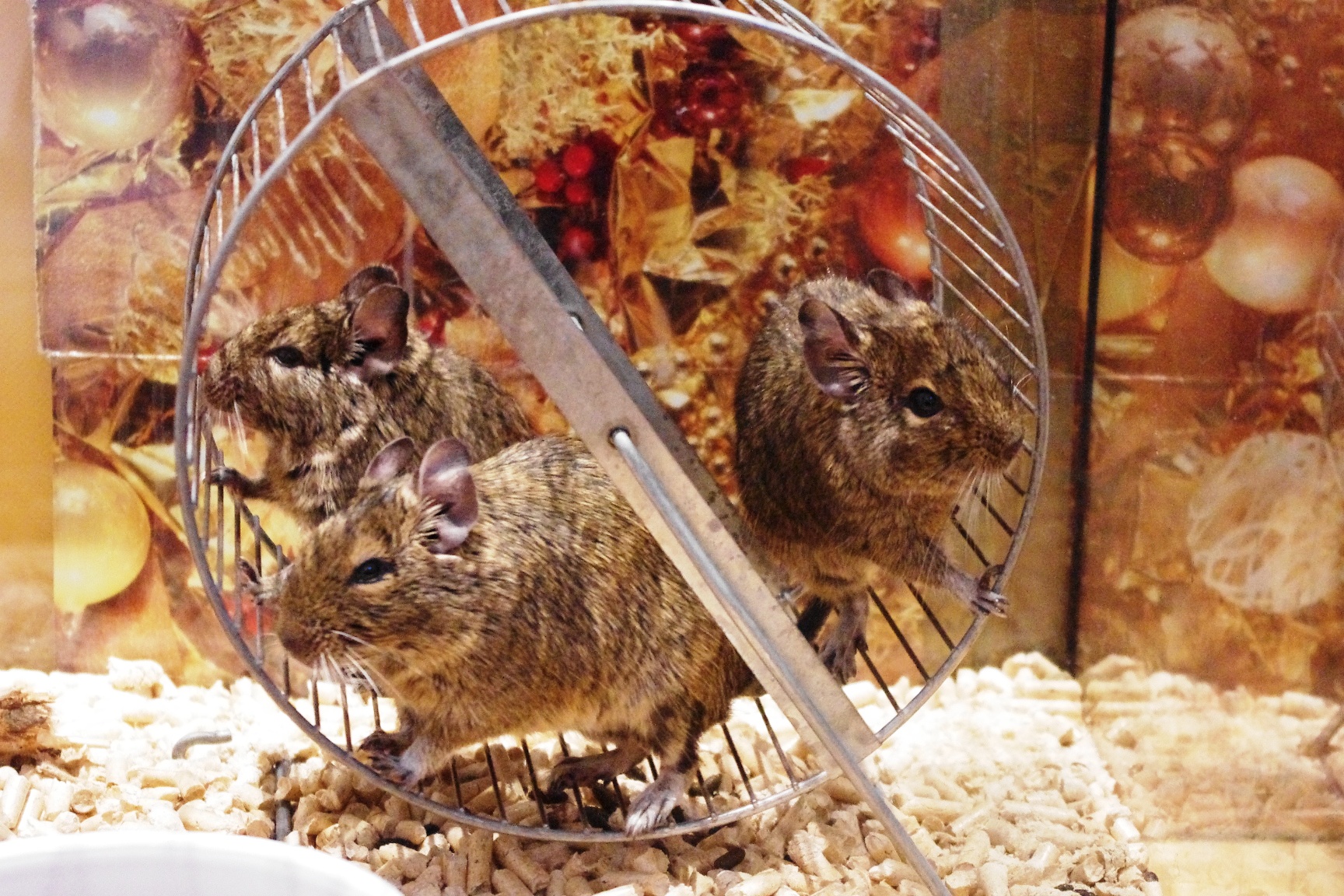There are few posts in my queue right now, that will never see the light of day. They were born our of anger and confusion and anxiety laced with a hint of depression. I suffered from severe pre-menstrual depression my entire life, and until I found the right medical team, every time I randomly felt despair and the desire to curl up in a ball and wail, I had to ask myself two questions: "Is this emotional reaction appropriate to the current events in my life? What day of the month is it?" If the reaction was "not appropriate", I usually had to ride out the next 24-48 hours before my brain magically reset itself back to normal (Someone should study this, because it's crazy fast. Literally like a curtain lifting). So as my life started spiraling out of control in the past few weeks, my safety questions came back to me with a slight variation "What time if the year is it?"
While it's a different cycle, the NIH cycle is as bad as the menstrual one. Especially, if you are on the running wheel of submitting a grant every cycle, which means having a grant reviewed every cycle as you are writing the other one. I haven't quite recovered from the meltdown in June (post here), which was on the heels of the February one, and here comes the October deadline. Last cycle my R01 was due the same day the other R01 was being reviewed. This time I'm on three R21s for October. Yup, you've heard this right. Three. And my R01 is being reviewed at the end of the October. Because for some reason, all my study sections tend to cluster as close as possible to the resubmission date, so that there is no hope I could skip a cycle. As my other funding gets close to the end, and the pressure increases for keeping the lab going, every grant generates more and more anxiety. The more you submit, the more it feels like there is no rhyme or reason and you just have to do your absolute best and hope that your proposal will fall in the right hands. The closer the study section date gets, the more you start second guessing what you have already sent in and you find all the flaws in your mind. Positive thinking and negative thinking run a strange relay in your head, when you want to believe the grant will be funded, but you want to prepare yourself for the worst at the same time, so you kind of go for the middle ground "All I want is a score!" I hate you running wheel!! (Waving fist to the sky)
So more and more yoga. And maybe I should pick up Transcendental Meditation...or drinking. What I should really be doing now, is writing.

"There are few posts in my queue right now, that will never see the light of day. They were born our of anger and confusion and anxiety laced with a hint of depression."
ReplyDeleteOh, but those are the best kind! ;-)
"While it's a different cycle, the NIH cycle is as bad as the menstrual one."
You are hilarious!
Seriously, I wish I could say something that would make you feel better, but you're further along this road than I, so what do I know. All I can say is that I very much appreciate your blog and your candor. Hang in there!
Your blog has been so helpful, and I appreciate you sharing with us your ups and downs. I'm a fairly new PI, and I have a few questions about your grant submissions. When you submit so many grants at the same time or back to back, are the aims the same or is each grant totally different from each other? How much overlap is there between them?
ReplyDeleteSecondly, when you submitted your R01 for the first time, what did the reviewers seem to care about? I'm asking because I'm currently a pre-R01 ESI and am getting conflicting info from more senior people. Some say that publications don't really matter for ESI, others say differently. Some people said that the biggest issues reviewers raise about ESI grants are typically related to the proposal itself. Any thoughts on this?
Hi there,
Deleteabout overlap: it depends. I use internal grants for refinement of bigger grants and may use portions of R01s for pilot awards. In general, NIH grants are stand-alone and all different, but as I go through revisions, I'm not sure what I will do. I had foundation grants that were similar, but tried to limit budgetary overlap and have them be at least partially different. If a small grant really doesn't hit after 2-3 times, I retire it and move on to something else...
about ESI R01: my reviewers really cared about feasibility of every single part of it. I was given no benefit of the doubt that I would be able to do what I proposed to do, even if they thought I proposed cool things. Part of it may have been I had not published some of the techniques proposed. Senior people say all kinds of things that usually apply to them and also that apply to the study sections they serve on...at the end what I realized is that you get you cues from your study section and your program officer. But I don't have an R01 yet, so don't take my words as Gospel either ;)
Thanks for sharing another informational post. I am one of the persons who love to try new things every other day. depression is so much common disease in our lives. And the problem is that we don't know how to fight against it. Your points will definitely help. Cheers!
ReplyDelete